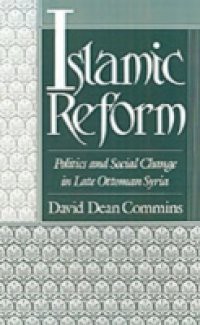Religious community and nation have long been the chief poles of political and cultural identity for peoples of the modern Middle East. This work explores how men in turn-of-the-century Damascus dealt, in word and deed, with the dilemmas of identity that arose from the Ottoman Empire's 19th-century reforms. Muslim religious scholars (ulama) who advocated a return to scripture as the basis of social and political order were the pivotal group. The reformers clashed with their fellow ulama who defended the integrity of prevailing religious practices and beliefs. In addition to two conflicting interpretations of Islam, Arabism comprised a new strand of thought represented by young men with secular educations advancing Arab interests in the Ottoman Empire. Religious reformers and Arabists shared a political agenda that shifted focus from constitutionalism before 1908 to administrative decentralization shortly thereafter. Using unpublished manuscripts and correspondence, inheritance documents, and Ottoman-era periodicals, this work weaves together social, political, and intellectual aspects of a local history that represents an instance of a fundamental issue in modern history.

